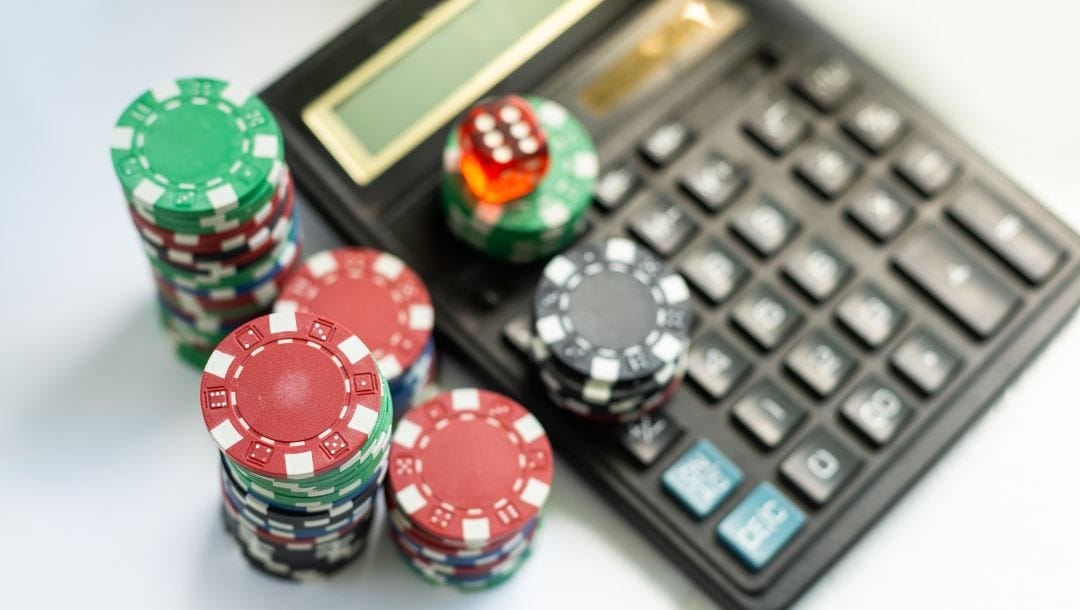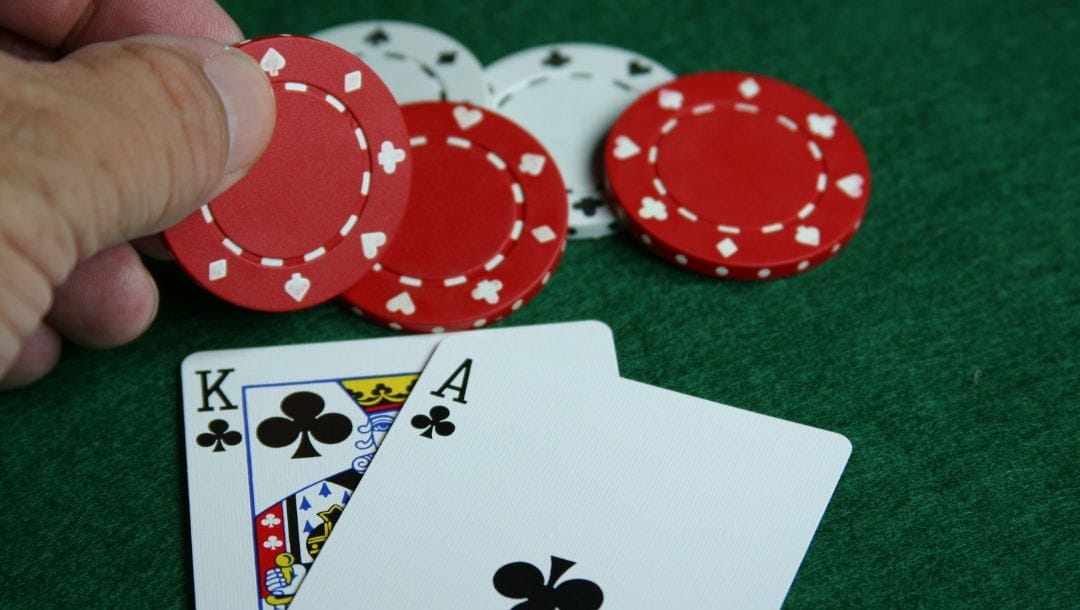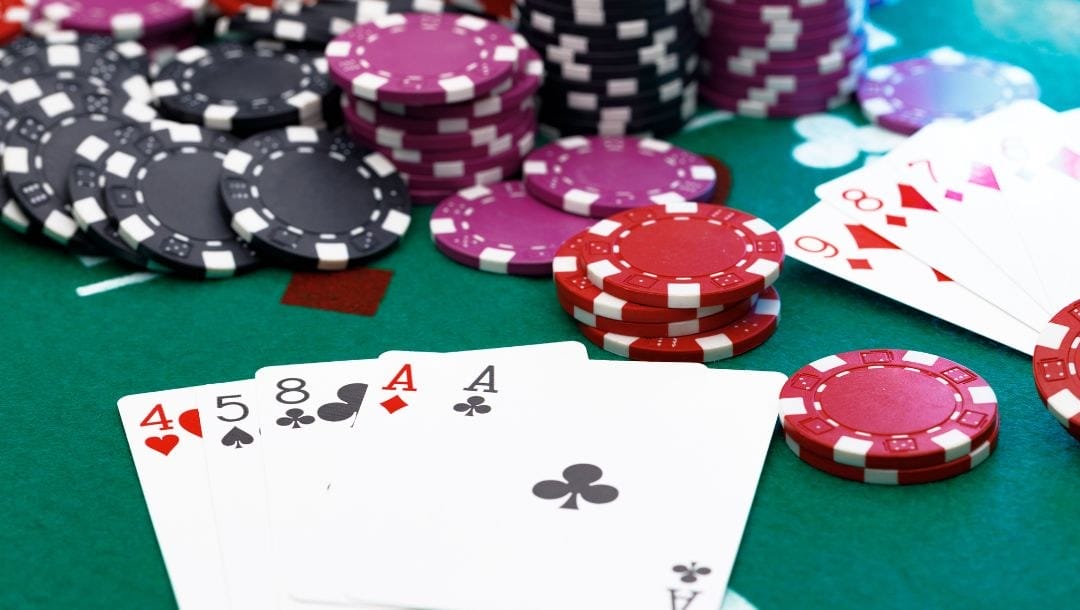It helps to win at poker if you have a head for math. Find out what calculations you need to make for the best results.
Poker Strategy Math You Need To Know To Boost Your Wins

Being a good poker player requires a multitude of different skills. Aside from mastering the mechanics of the game, you need to apply a little psychology, make strategic decisions and, if you’re going to maximize your wins, you also need to call on some basic poker math principles. The good news is you don’t need to be a math genius, but if you understand probability, percentages and betting odds, chances are you’ll be able to improve your game by putting your skills to the test and will soon be ready to take on anyone in online poker tournaments.
The Importance of Reads
Aside from some essential poker math, good reads can significantly increase your chances of making a sound bet, based on assumptions of what other players may be holding. If your bluff detector is accurate, you can calculate odds in or against your favor using good mathematically-based decisions, avoiding any wild bets. It’s worth remembering that in online poker no one can truly read anyone, so you’re free to get on with your game plan without worrying about body language and mind games.
Equity and Fold Equity

Calculating the equity of your or an opponent’s hand is a fundamental math process and one of the principles in poker math that matters most. Calculating equity is something that you will use all the time when you’re playing poker games online, with friends or in a land-based casino. Equity refers to how much of the pot a player can lay claim to — based, of course, on your odds of winning the pot. It may seem counterintuitive, especially for beginners, but you don’t need to have the best hand in a poker game to come out the winner. It’s the equity you have in your hand — the value of your cards versus what you assess other players may be holding — that’ll determine if you win or lose and how well or how badly.
Fold equity is calculating the probability of getting your opponent to fold. If they stubbornly hold out, does this mean they have a strong hand or that they’re bluffing? That’s another set of odds completely.
Pot Odds
Pot odds refer to the size of the bet you have to call on in relation to the size of the total pot as it stands at any given point in the game. This is where the math concept of risk and reward comes into play. Pot odds are expressed as a ratio much like in sports betting, for example, it may be 2:1 (which, in American moneyline format, is -200.) The first number represents the reward and the second represents the risk. This means that in placing a bet with these odds, you risk one unit, say $1, to win $2.
In deciding whether to stay in the game with these odds, you need to calculate your hand equity and weigh all the factors up. The equation for this is risk/risk+reward, i.e. 1/(1+2) so in this case, the magic number is 33%. With a hand equity higher than 33% (-200 in American moneyline,) play on. Lower, and you need to do a few more calculations before you decide how to proceed.
Pot odds ultimately determine whether any call you make will be profitable or not.
Implied Odds
Implied odds take the basic pot odds concept one step further. This is a calculation based on what you might expect to win later in the game. It’s mostly used to decide whether the risk/reward ratio merits your making a call with a draw. What you need to ask yourself as far as implied odds are concerned is, what the minimum amount you need to win on any betting round is to make a call financially worth your while.
Expected Value

If you know how to play poker but want to be a more successful player, you need to consistently make strong (read: profitable) expected value (EV) plays. This means evaluating any number of different scenarios and likelihoods, and assessing what happens to the pot and your stake in the event that another player folds or calls.
Hand Combinations
Based on a poker game using one deck only, there are more than a thousand possible hand combinations that can be dealt preflop. If you miscalculate and miss the flop, then you may need to adjust your calculations and your strategy, but all is definitely not lost.
It’s All About Decision Making
Being able to make some quick calculations at the table will help you make the best decisions about when to call, raise or even fold. And it’s not only about the cards you’re holding and what the other players might be holding, winning is about what you risk in terms of your stake and what’s in the pot. Poker is one long continuous decision around cards and odds that change at each stage of the game. Knowing what your choices are, based on a math equation, will help you make a decision for the best and hopefully winning outcome.
The more you practice, the quicker you’ll be able to make those calculations in your head. Are you all in or do you fold? Even discretion being the better part of valor can be reduced to a mathematical calculation in poker.
Practice Your Strategies With BetMGM
The best way to understand the complexities of poker and apply those basic math principles is to play. The more hands you experience, the better you’ll be able to understand what’s at stake and what the best bet is. If you want to get some practice in and play the poker format of your choice, register to play on BetMGM.


